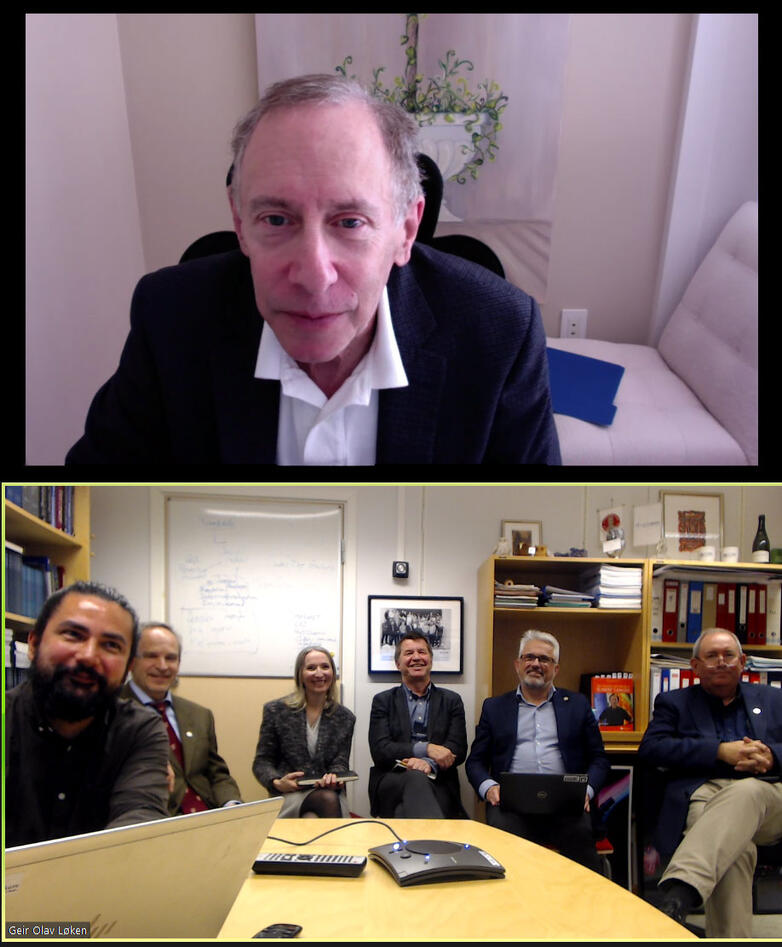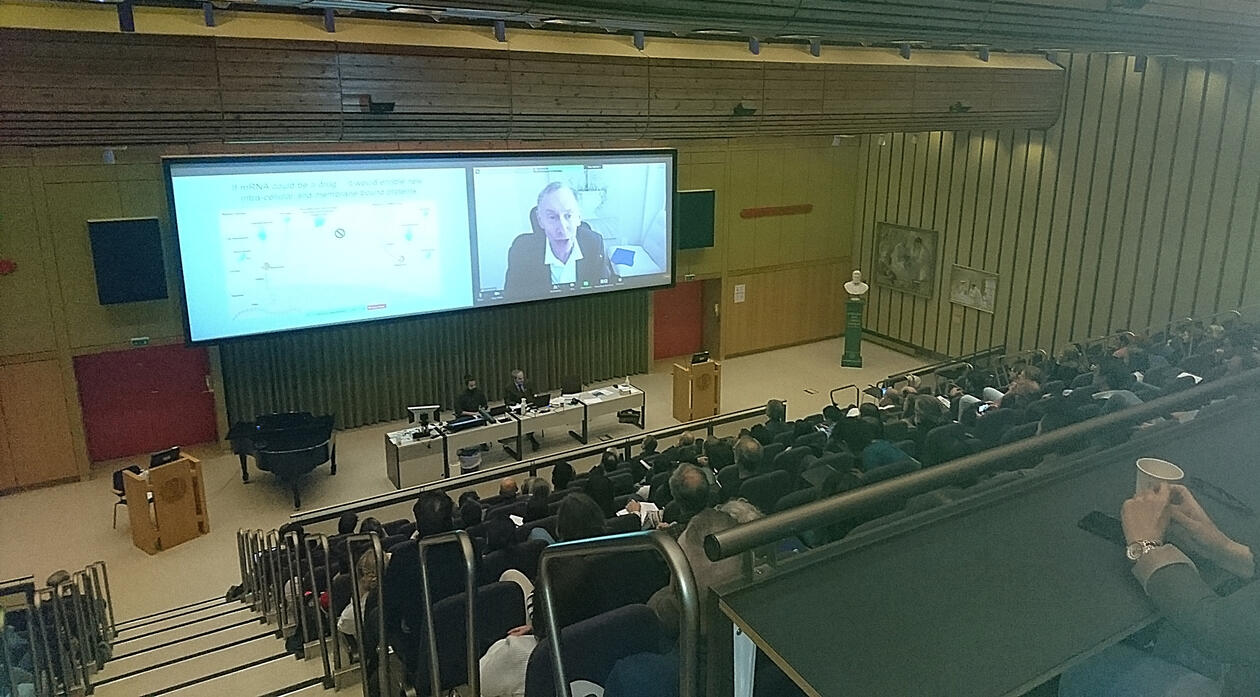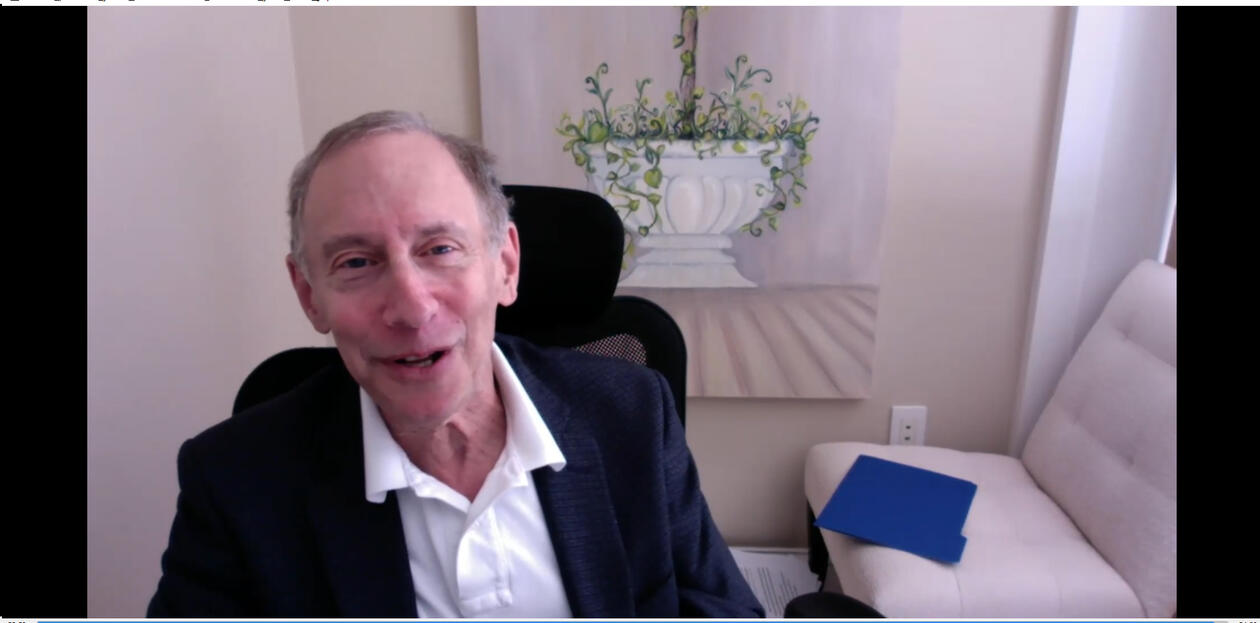True believer in the magic of science
November 9, Professor Robert S. Langer, Massachusetts Institute of Technology, presented the Falch Lecture entitled "Creating and implementing breakthrough technologies in biotechnology and nanotechnology". Through a live streaming from MIT, the around 200 people in Store Auditorium enjoyed a truly inspirational talk, motivating them to pursue their ideas and keep asking the fundamental questions.

Main content
Dr. Langer was nominated to the Falch Lecture, hosted by the Medical Faculty at the University of Bergen, by CCBIO Director Lars A. Akslen and the Neuro-SysMed Director Kjell-Morten Myhr.
From struggles and dreams to success
On the examples of his own work, Dr. Langer connected with the audience when describing his trials and tribulations, as well as his journey to academic recognition. The audience got to experience a "scientific giant" whose accomplishments can only be described in historic terms. Around 200 attendants also met the human who through dedication and sheer perseverance overcame scientific, institutional and entrepreneurial barriers, especially during the early years. Dr. Langer takes much pride in the successes of his former students and fellows, while attributing his own breakthrough also to his mentor, the late Dr. Judah Folkman, who inspired him during formative, post-doctoral years.
The fact that it took Moderna - a company co-founded by Langer - only 64 days from receiving the genetic code of SARS-CoV-2 from Chinese scientists, to administering Moderna's COVID-19 vaccine for the first time to humans, is truly mind-boggling. At the same time, Langer showed that this is the result of a combination of visionary science and entrepreneurial preparedness and maturity.
See a video from the presentation here.
"Persevere when you believe your science is right"
In the illuminating Q&A session that followed the Falch Lecture, Langer shared important insights: that great innovations are typically the result of bold, curiosity-driven research; that it takes well-funded, expert institutional support to transition research results to new treatments that save lives; that perseverance is a key especially during difficult times; and that both international collaboration and a healthy portion of competition are important factors for scientific breakthrough and entrepreneurial success.
Expose your young researchers to big ideas, tell them to take risks, and converge people from different disciplines towards a common goal.
Remarkable career
“Bob Langer delivered an outstanding Falch Lecture and shared some personal and inspiring thoughts on his remarkable career in medical research and innovation. He is one of the true giants and a global superstar. CCBIO is inspired by Bob’s deep reflections, and we are looking forward to welcoming him in person at the CCBIO Annual Symposium in May 2022, COVID-19 permitting,” says Lars A. Akslen, Director of CCBIO.
Read more about the Falch Lecture event in this CCBIO article (English) and this Medical Faculty article (Norwegian).


